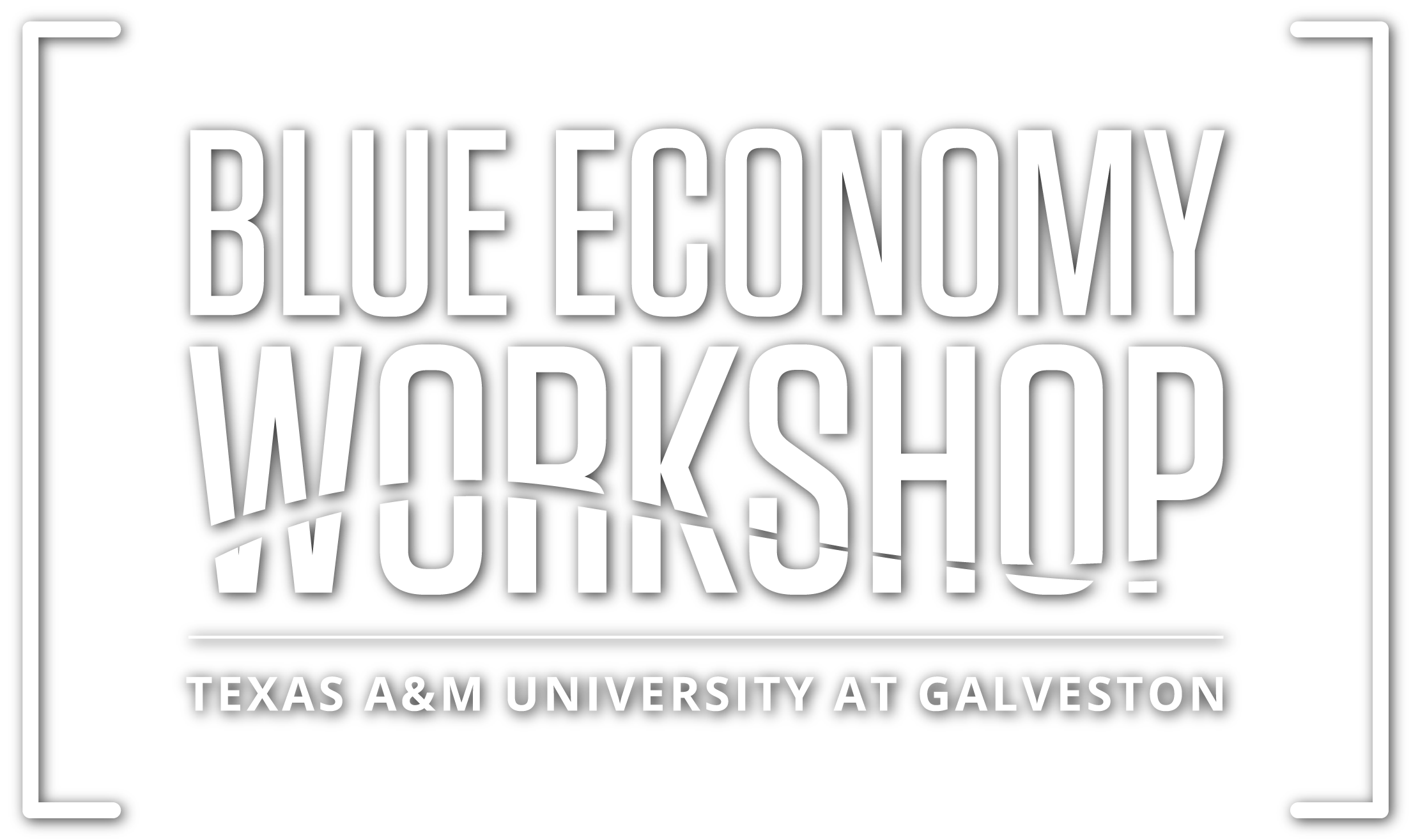
Blue Economy Workshop, JANUARY 8-9, 2024
About Workshop:
The Blue Economy Workshop aims to strengthen and advance Texas A&M University at Galveston's current efforts in the blue economy arena and position the university to advance societal impact, submit winning proposals to the state, federal agencies, and the private sector, and garner support from foundations interested in supporting oceans and the environment. Create opportunities for workforce development and contribute to the economic growth and well-being of those on the island and its surrounding communities.
Target Participants
Leaders and faculty representatives of units (departments, centers, institutes, programs, etc.) across the Texas A&M University at Galveston landscape whose mission is relevant to (or in alignment with) the blue economy initiative.
Junior faculty interested in learning more about the Blue Economy, networking, and developing research in this arena are also encouraged to attend.
Workshop Objectives
Develop a concept roadmap with strategic research priorities and partnerships. This concept roadmap will include:
- Current areas of strengths, areas of desired strength and intersection, niche domains, gaps in capacity, and potential external collaborators to expand Texas A&M-Galveston's leadership in the blue economy arena.
- Identify critical funding opportunities at state, national, and global levels, and strategies and resources to take advantage of the opportunities.
- Examine specific opportunities for advancing societal impact to the state and nation.
- Use the road map to leverage the outcomes of the workshop and ensure actionable steps for further development of the blue economy initiative.
- Better define and clarify which areas we move forward in over the next 3, 5 and 10 years.
Workshop Outcomes
- Road map (with timelines) for the blue economy initiative.
- Identify leads in the 5 core areas of the blue economy initiative.
- Identify strategic partners (i.e., UTMB, Vision Galveston).
Pre-Workshop Homework
- Prepare a poster in your area of expertise for the evening social – this will provide participants with a mechanism to learn more about each project participant.
Additional Goals
Educate faculty on defining the blue economy focal areas for Aggies.
How Does The Texas A&M University at Galveston Workshop Define the Blue Economy?
A sustainable ocean and coastal economy emerges when economic activity is in balance with the long-term capacity of oceans and coastal ecosystems to support this activity, remain resilient and healthy, and should improve the lives of all. A successful blue economy creates jobs, reduces poverty and ends hunger while at the same time conserving marine life and oceans and protecting coastal communities from the impacts of climate change. We cannot do all these things so have chosen to limit the scope of this workshop to the five key areas below.
- Blue Justice
The general idea being that ocean and coastal tourism can lead to economic growth in coastal communities, but those living in those communities are not always direct beneficiaries nor do those working in these industries have access to the necessary healthcare resources should they need them. - Offshore Wind Energy/Renewable Energy
Marine energy plays a vital role in social and economic development. The development of engineering solutions for ships and ports of the future is core to advancing the movement of goods around the oceans in a sustainable and safe manner. This includes alternative fuels, decarbonization, but also considers cybersecurity concerns. - Maritime Transportation in Transition
Ports and shipping companies have supported the emergence and diversification of global trade for several decades, particularly with the diffusion of the container. Past trends in the industry mainly focused on improving efficiency and capacity. In the last two decades, new paradigms and trends have emerged around the concept of the blue economy that has incited a refocus on issues such as digitalization, resilience, circular supply chains, and decarbonization. The extended use of the blue economy for recreational purposes, namely with the cruise industry, is also an important dimension. - Sustainable Oceans
The impact of climate change on oceans (rising sea level, changing currents, acidification) and coastal zones (erosion, loss of wetlands) is staggering. Furthermore, 80% of the litter in the oceans is from land-based sources; recycling alone will not stop this problem. Concurrently marine fisheries contribute more than US$270 billion annually to the global GOP. More sustainable fisheries will generate more revenue, more fish will restore fish stocks. However, what will be the impact of aquaculture and other activities on the coastal zone. - Coastal Resilience
The Institute for a Disaster Resilient Texas (IDRT) mission is to deliver critical research on disaster risk reduction, support state agencies with data analytics and decision-making tools, and generate evidence-based solutions that help Texas communities become more resilient. IDRT aims to provide the foundational data and tools necessary to support those efforts.